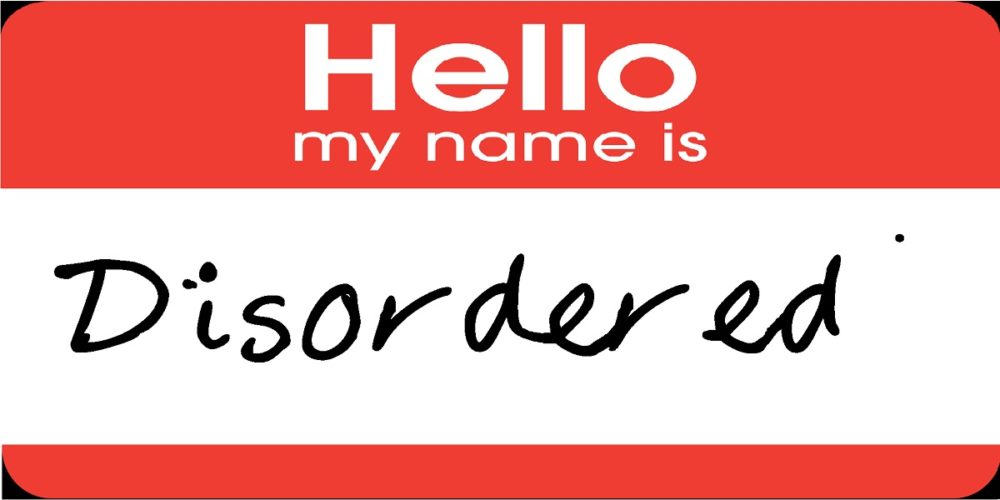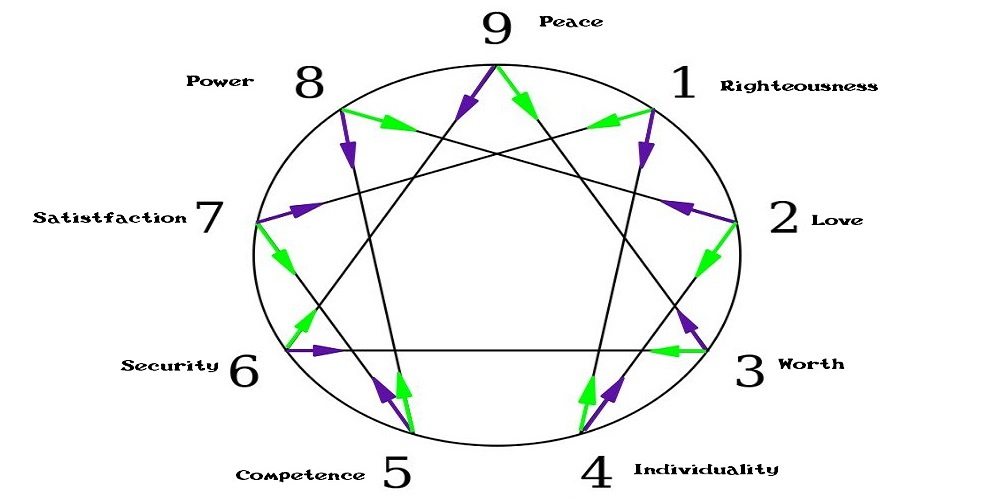
When Karen posted her critique of the new FX show Legion the other day, it spawned some interesting discussions among a few of us GeekMoms. I for one didn’t agree with her initial assessment. How can you evaluate a show based on its portrayal of various real disorders when, in the show itself, it’s not even clear what the disorders actually are?
In fact, that’s one of the things that interests me most about the show. David Haller sees and hears things that others don’t, so everyone, including himself, assumes he’s schizophrenic—that’s his diagnosis, that’s his label. Except these symptoms turn out not to be schizophrenia, but psychic powers, so technically, the label is wrong. But it’s wrecking him nonetheless—he’s stressed, terrified, frustrated, confused. He probably really does have some kind of mental illness now, whether PTSD or paranoia or just plain chronic anxiety. Does it matter if he’s been diagnosed schizophrenic if he’s not, technically, hallucinating? He still needs to deal with his symptoms whether they exist or not. Is it better to have a slightly wrong label if it gets you help, or is help going to backfire because the label doesn’t fit?
I spent a lot of time pondering this, long before I read anyone else’s reaction to the show. I’d watched Legion within 24 hours of finding out I’d been officially, medically diagnosed with “ADHD-Inattentive Type,” which is the current way of saying “ADD without the H” (SOOOOO without the H, in my case). It’s something we’d sort of joked about in our family before, but having it written out, official? It… well, doesn’t change anything. Does it?
In some ways, the fixes are the same whether I have an official attention disorder or I’m just scatterbrained. I need lists and calendars and schedules. I’ve known that a long while, even back as a teenager when I would draw up a calendar of my summer vacation so I wouldn’t waste all my time staring at the radio (I did anyway) (and yes, I said that right). I have to take the strong possibility that I will probably be late into whatever plans I make, telling myself to be somewhere earlier than I actually need to be there, just so I get there on time. The clock in my car is two minutes fast. I KNOW it’s two minutes fast, but somehow even still it pushes me to hurry more.
But on the other hand, the label clears everything up, somehow. Look, I’m not just lazy! I’m not just not trying hard enough! My brain really does work differently than average! Ironically, floating around without an official label can make a person feel weirder than getting a supposedly-weird label. The label justifies quirks that seemed to be just “something wrong with me,” even when the label can make no real difference in the practical matters of life. I felt that sort of release when I discovered the concept of demisexuality. I’m married—it doesn’t matter that I don’t feel an initial sexual attraction to anyone without an emotional connection because my dating years are far behind me. And yet, being able to claim the term, claim the concept, is like saying, “oh, see? I’m not just some kind of weird prude! This is an actual THING!”
But, on the third hand, the label is probably still not entirely accurate. “Honestly, I’d have thought you were on the spectrum, not ADD,” a friend of mine remarked when she heard. “[Her daughter]’s psychologist has been doing research on how high functioning autism presents totally differently in girls… one of the side effects of ASD IS ADHD. Also things like being more sensitive to emotions. Reclusiveness. Hard time making decisions. Trouble with motivation for non-preferred activities.”
She’s probably right. Not just because that all describes me to a T, but because it’s been on the table for decades. My little brother, ten years younger than me, is on the spectrum. When he was diagnosed, in the mid ’90s, milder forms of autism weren’t quite as well-known as they are today. “Asperger’s Syndrome” was just starting to take off as a diagnosis. My brother didn’t exactly fit the list of Asperger’s symptoms, so they wouldn’t give him that label, but he was clearly higher-functioning than nonverbal Classic Autism, so they finally called it “Pervasive Developmental Disorder—Not Otherwise Specified.” It seemed like a cop-out diagnosis to me: “You do NOT fit our checklist, but you’re obviously still having problems, so here, have this vague acronym instead.”
Even then, my dad pointed to some of the materials he’d been reading on the subject, and told teen me, “This is interesting, what this says about ‘Shadow Symptoms.’ It says many people exhibit some symptoms, but not enough to qualify as a disorder. But it sounds a lot like you.”
It certainly did. But, yeah, I didn’t have a disorder. I did well in school and was involved in lots of extracurriculars and I never caused anybody any problems. Except I was now seeing a psychologist for depression. Depression exacerbated by my social awkwardness and emotional regulation issues and resulting loneliness (and the demisexuality, too, for that matter). Those darn Shadow Symptoms were making my life miserable, but they weren’t a disorder, so hey, suck it up, little Amy!
It’s funny that more recent comic book issues involving the character of Legion have indicated he’s on the spectrum, too, because that’s exactly where I’d gone with my own superhero character I’ve been writing since my teens. Billy had always come out of my mind and pencil socially awkward, but when I started giving him backstory, imagining what it would be like as a kid who can sense the very fabric of the universe, it occurred to me that he might have been misdiagnosed by well-meaning parents and doctors and teachers. To quote my own probably-never-going-to-amount-to-anything writing: “Some of my earliest memories are of strange people asking me questions about pictures and toys and people and life, and them taking all sorts of notes, and then talking quietly to Mum about ‘we’re not really sure; we’ll just have to keep watching; you know all children develop differently, Mrs. Harrison,’ while I wandered off to see if they had any Superman toys, all the while hearing all of this, because I did have particularly good hearing. I think this translated in their notes as ‘extremely sensitive to loud noises’…. Look, you can’t pretend you don’t think I’m odd, I know very well I’m odd, and I know that’s why I haven’t got any friends; it’s only that Mum needed some label to explain it all and ‘he’s got superpowers that are taking over his life’ just wasn’t fitting into her paradigm.”
The thing is, I consciously tried to be clear in my stories that people thought Billy was autistic, but he wasn’t actually, it was just how he appeared due to being overwhelmed by his own super-senses. To be honest I was a little nervous that, if I wasn’t clear about it, people might be offended that I was portraying autism wrong, or implying something problematic involving savant abilities. But on the other hand, um, he IS mildly autistic. Maybe superpowers aren’t what causes autism in real life, sure, but the kid struggles with most of the same issues.
My favorite book, A Wrinkle In Time, was written in the 1950s, long before Asperger’s Syndrome became the It*-Diagnosis in the ’90s, let alone today’s more all-inclusive term Autistic Spectrum Disorders. But the character of Charles Wallace definitely appears to be on the spectrum as well, what with his delayed-speaking turned “Little Professor” speech patterns, a super genius unable to fit in with his peers or even other adults. Oh, he also has psychic powers. He and my Billy and David Haller make quite a team. And L’Engle does indicate that he’s not disabled, he’s extremely gifted, the next stage in evolution, which brings us back to the X-Men again.
It’s a trope that can get problematic: are we implying that having a neurological difference or mental illness isn’t really bad, it’s just disguising some kind of super power (whether magical or merely ordinary supergenius)? Or are we implying that these characters are not really impaired like those OTHER people, no, this is DIFFERENT? Both implications are equally cringe-worthy. But what if it’s not implying anything? What if this is just who these characters are, with the good and the bad? Sure, they’re extremely gifted, but they’ve got extreme struggles, too. Great advantages in one area of life don’t actually negate any disadvantages—they just change the overall picture, making it hard to label.
Then, what about Charles Wallace’s sister, Meg? Doesn’t she seem like another Shadow-Symptomed-But-Not-“Disordered” older sister, like me? The girl’s in a hole. She can’t seem to be “normal” and the struggle to be so has tipped her into the depths of self-loathing, but instead of help for her issues, she gets detention for her disruptiveness.
Which brings us to the most important use of labels: a labeled disorder can get you the help you need at the roots. A lack thereof just gets you punished for your failure to control your symptoms.
For the past few years, my 4th grader has struggled at school with attention issues and an extremely explosive temper. I, in turn, have struggled with trying to get his teachers, doctors, counselors, and the bureaucrats tying them all together on the same page. Can we get this service? No, not until this other department does a separate evaluation. Okay, here’s that evaluation. Well, now, I’m not quite sure he qualifies for this particular service, but this other department can do an evaluation…. Meanwhile, months and years pass, and my kid gets more and more discouraged, which only increases his tendencies toward ignoring his work and losing his temper. The other day his principal told me, as if she wanted to break it to me gently, that she was “seriously considering” getting him an emotional support plan or even full-blown IEP for the next year, “if that would be all right with you.” Was she kidding? What did she think I was asking for all these years? Please make it official, put it down on paper, so we can work on real solutions instead of just giving him detention over and over (which, obviously, has not been working).
I again think back to my own childhood, as a kid who did too well in school to be Officially Labeled anything other than “Gifted.” I wish I’d had an IEP or 504 plan for dealing with those Shadow Symptoms, as learning how to deal with them would have better prepared me for life than learning how to ace a test, which I already could do naturally. But squeaky wheels and all. I guess I didn’t squeak enough.
So I’ve been trying to figure this out. A person is struggling with something—mental, physical, emotional, whatever. They need to find a fix for whatever it is they’re struggling with. So they (or their loved ones, depending) set out to fix the symptoms, first of all. But that’s a reactive fix, and oftentimes it doesn’t work: the antacid can’t counteract the heartburn completely when the heartburn is caused by another digestive disorder, the detention can’t stop the misbehavior when the misbehavior hadn’t been a conscious desire to misbehave. So now we have to look deeper to find the causes, and if a clear cause is found, we label it. BAM. Ah, with that label, we have a protocol to follow! We can give you help!
But what if the label doesn’t quite fit, as with a “Shadow-Symptom”ed kid who doesn’t meet all the checklist requirements? What if a label can’t be found at all, as with my heartburn issue (which hasn’t been bothering me lately, actually, so maybe it fixed itself. But who knows since we never figured out what was wrong to begin with)? The symptoms remain, causing trouble, but nothing can happen because without the proper label, all we get are the same old surface fixes that weren’t working in the first place.
Wouldn’t it be great if we could find the right fixes without depending on labels? If everyone had their own personal 504 plan to deal head-on with whatever they particularly have to deal with, regardless of what exact label they fall under? It would be ridiculously complicated, and that’s why people developed labels—to simplify complex human beings down into a checklist of symptoms with a particular protocol.
So, no, I still haven’t reached any clear conclusions on the subject. All I know is that it’s both fascinating and necessary to think about.
*Please excuse the use of the word “It” to refer to something positive in a reference to A Wrinkle In Time.




Ok, first of all, get that heartburn thing looked at. There’s something called Barrett’s esophogus where your esophogeal tissue mutates into stomach lining to protect it from the constant assault of stomach acid. Pretty neat stuff, but also is considered “pre-cancerous.” They can put you on Nexium, or if it’s bad enough, there are minimally invasive surgeries to fix that. Me? I’d put it off until I couldn’t swallow solid food 9/10 times, and ended up in the hospital with severe anemia and other complications from undiagnosed ulcers.
Second of all – great article. EJ had such a hard time getting a diagnosis for so many years. I knew she was on the spectrum. Her psychologist knew. Her teachers indicated they knew too. But she was JUST “Normal” enough to not qualify until she outgrew the “range of normalcy” or something like that. Basically, until she got old enough that some behaviors couldn’t be attributed to “being a little immature for her age.” We got a PDD-NOS diagnosis as a placeholder until then, though.
Let me teach you a couple VERY IMPORTANT WORDS for your future struggles with IEP and 504 plans. “Do we need to schedule a DUE PROCESS HEARING?” School administrators will jump through any hoop to avoid those, because once you ask for one, the government gets involved AND it costs the school money.
NOt that I’m into bullying your school to listen. But if you have to do it, you have to do it.
I’m so sad that your little guy got detention over and over. THat’s not fair, he’s a sweet kid, but did they try behavior plans? What DID they try?
If you need any help navigating the school system as a special needs mom, let me know, I’ll gladly teach you anything I’ve learned!
I have Barrett’s esophogus and it’s no joke! I have been on an over the counter antacid for years and it has helped but nothing worked as well for me as a mild prescription of fluoxetine. I went 30 years thinking a sick stomach and vomit-inducing acid was just a normal part of life and then my new primary care physician suggested I had IBS and put me on the med and it just went away. When I think of all the damage that has been done to my body from the untreated acid over the years it makes me angry that it was such a simple fix in the end.
Thanks for the comment Megan, I really appreciate when our readers contribute to the conversation and you’ve really added a lot with your feedback!